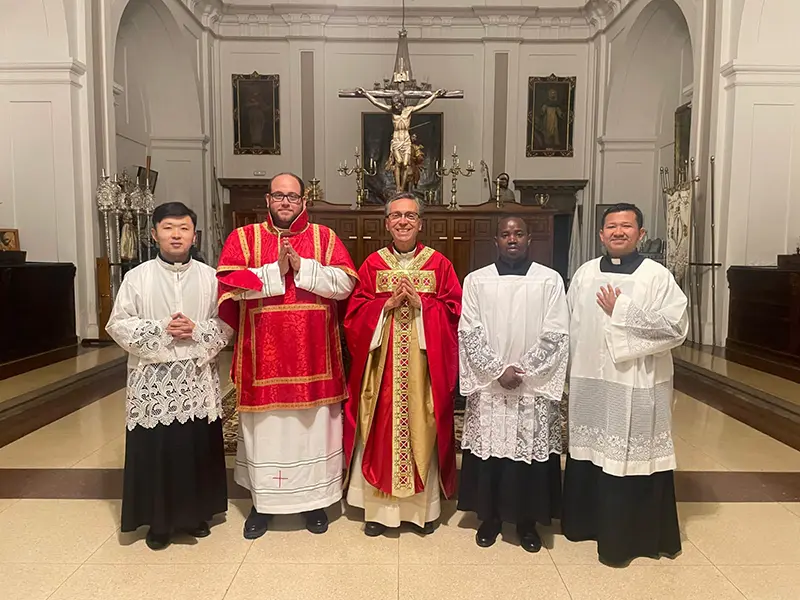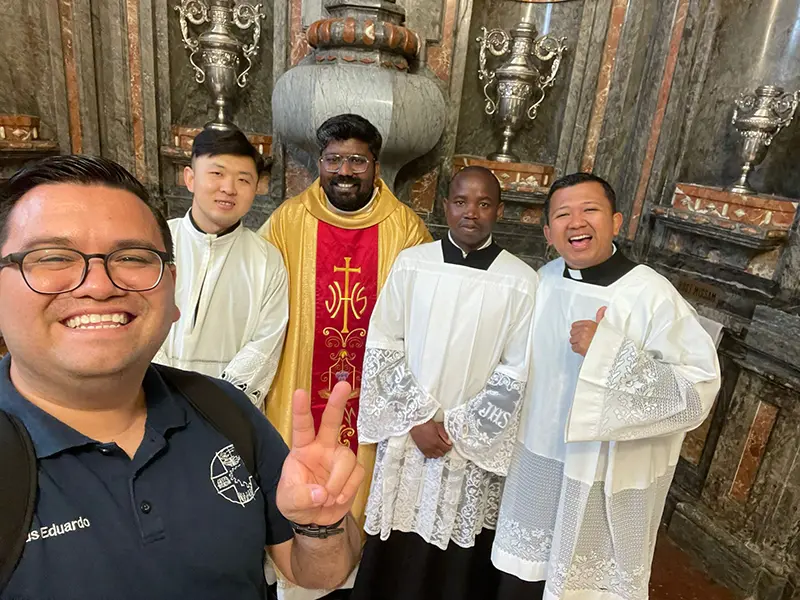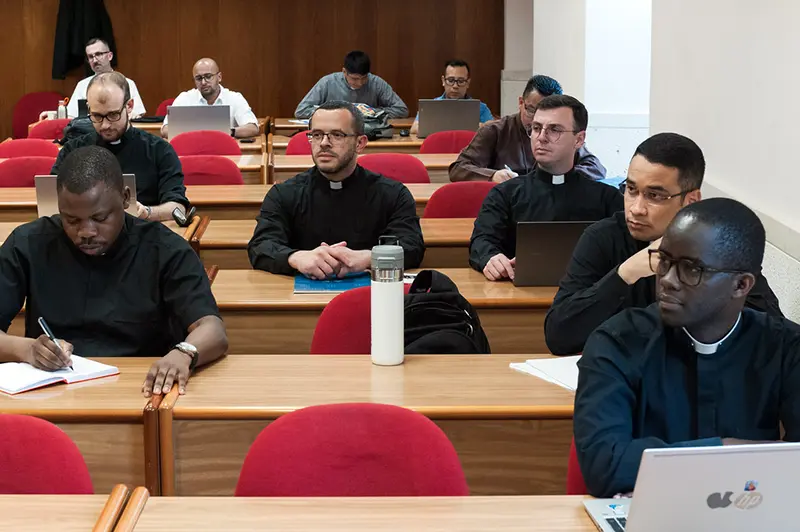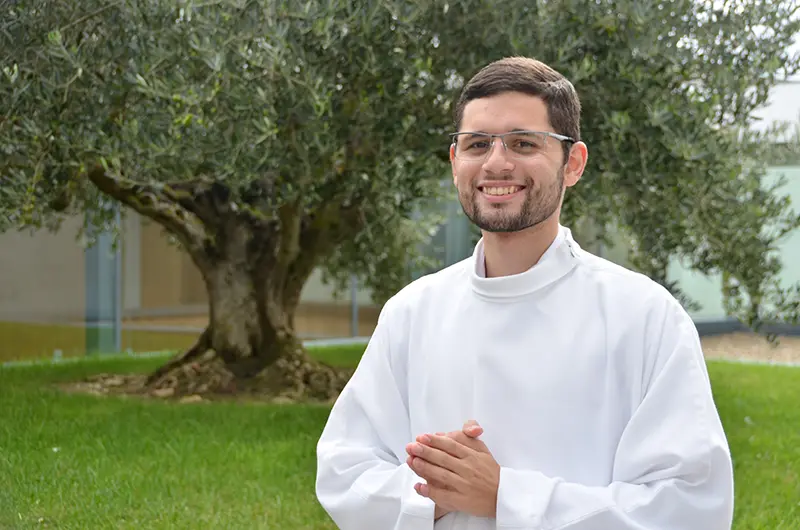
During the path to the priesthood, seminarians are not only formed in the study of theology or in the spiritual life. They also prepare themselves to exercise a key and profoundly human task: accompanying, serving and caring for people in their life of faith. This is called pastoral ministry: an experience that not only enriches their formation, but also allows them to experience what their future ministry as priests will be like.
At the CARF Foundation, we accompany hundreds of seminarians from all over the world who, thanks to the help of our benefactors, receive an integral formation. An essential part of this formation is precisely to leave the classroom and the oratory or chapel of the seminary to meet people where they are. But what does this task really mean, what is its function in the seminary, is it just another practice or something essential?
The word comes from the Latin term pastorwhich means shepherd of the sheep. In the Church, this evangelical image refers to the care of God's people, just as Jesus Christ, the Good Shepherd, did. To live pastoral care, therefore, is nothing other than to to go out to meet people, guide them, listen to them, accompany them and offer them the nourishment of faith..
For a seminarian, this aspect of formation is as important as the study of Philosophy, Theology or Liturgy. Through it, the future priest learns to:

Serving others in these non-academic periods (Easter or summer) is not part of an academic exercise, nor of a professional rehearsal. It is a real encounter with the other. For this reason, from the first years of the seminary, the formators propose to the seminarians various activities in parishes, schools, hospitals, residences, prisons or in the university environment. There, always accompanied by experienced priests, the young men learn to live what will later become their daily tasks.
Many seminarians residing in international houses such as the Bidasoa International Seminary (Pamplona) or Sedes Sapientiae (Rome) do their internships on weekends and vacations. In spite of the academic requirements of the ecclesiastical faculties of the University of Navarra or of the Pontifical University of the Holy CrossThey dedicate this time to serve wherever they are needed: giving catechesis, visiting the sick, organizing activities for young people or collaborating in the Sunday liturgy.

A seminarian does not wait to be ordained to learn to be a pastor. Training starts now. In these real experiences he discovers the multiple dimensions of the priest: consolation for those who suffer, patience with those who doubt, the joy of hidden service, attentive listening to those who seek meaning in their lives.
It is also a key moment of personal and spiritual maturation. Service "tests" vocational motivations, purifies the seminarian's heart and helps him grow in humility and generosity. As he himself cannot yet administer sacraments, its role is focused on accompanying, listening and servingwithout pretensions, from the simplicity of testimony.
Many seminarians who receive training grants thanks to the benefactors of the CARF Foundation share their experiences and knowledge. moving testimonies of his life experience. An African seminarian recently recounted how, during his visits to a hospital, he learned to "see Christ in every bed, in every face, in every wound". Another, from America, explained that in catechesis with children he had discovered "the pure joy of transmitting the faith with simple words, but full of truth."
These experiences leave a deep impression. They not only confirm the vocation, but also open the heart to love. A love that will be the basis of future priestly ministry: close, available, cheerful and dedicated.
Training is developed progressively. In the first years, the activities are simpler and are always carried out with accompaniment. As the seminarian advances in his formation, he is entrusted with more responsibilities and is invited to become more directly involved in the life of the community.
In the last years of formation, many seminaries live this custom for a year or for a more intense stage of parish insertion. When the seminarian is ordained deacon, he can now preach, baptize, celebrate weddings and accompany the faithful with greater freedom. This stage is crucial to prepare him for the total dedication that priestly ordination entails.

This service role is part of the deep and realistic apprenticeship that prepares seminarians to become priests after the heart of Christ. Thanks to the generosity of the benefactors of the CARF Foundation, hundreds of young men from all over the world not only receive a first-rate academic formation, but are also able to live these experiences that transform their vocation into a concrete and joyful dedication.
Accompanying them on this path is an investment of hope and future for the universal Church. Because where there is a seminarian who learns and gives himself without measure, there will be a faithful community that one day will have a well-formed, close and generous priest.